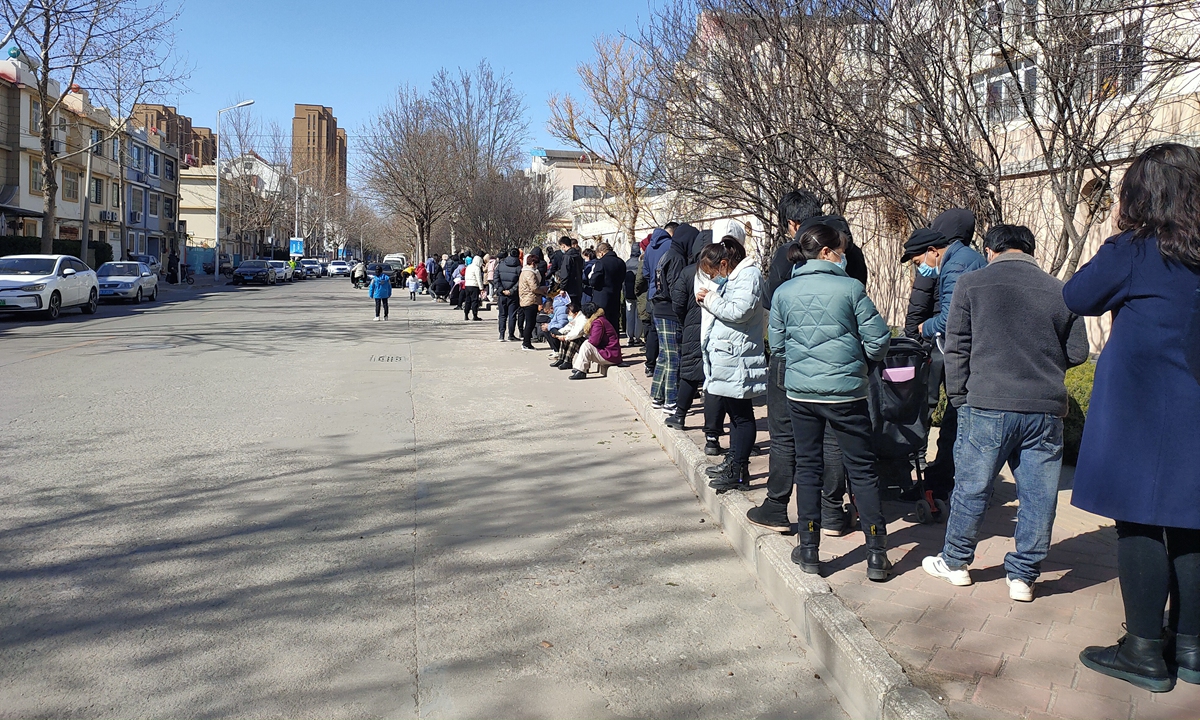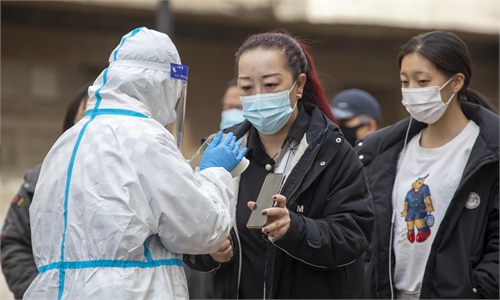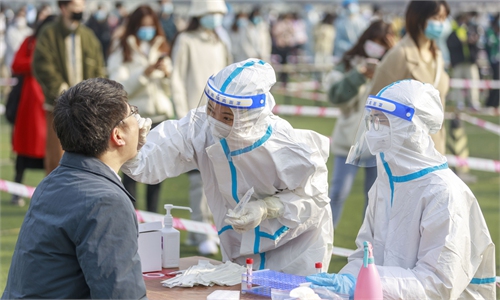Chinese mainland’s daily domestically transmitted COVID-19 infections exceed 1,000 for the first time since Wuhan outbreak

Residents line to take nucleic acid tests in a community in Laixi, East China's Shandong Province on March 5, 2022. Photo: VCG
The Chinese mainland reported 1,100 locally transmitted COVID-19 infections on Friday, including local asymptomatic infections, the first time daily case numbers have exceeded 1,000 since the initial outbreak in Wuhan in Central China's Hubei Province.
A total of 397 local confirmed COVID-19 cases and 703 local asymptomatic infections were reported on Thursday, according to the National Health Commission (NHC) on Friday. Of the new local COVID-19 cases, 121 were reported in East China's Shandong Province, 98 in Northeast China's Jilin Province, and the rest of the cases were reported in other provincial-level regions, the NHC said in its daily report.
China has seen spikes in local COVID-19 cases in recent days with many asymptomatic infections found during this wave of outbreak, affecting at least 19 provincial-level regions, the latest daily report showed on Friday.
Experts stressed that it's still important for China to stick to the "dynamic zero-COVID" policy, which has proved to be effective in preventing severe cases and deaths, despite the number of local infections might continue to increase to some extent.
It has been two years since the outbreak of the coronavirus, but the virus is changing all the time. More studies will be conducted and corresponding research and development such as drugs and vaccine protection need to be strengthened, Chinese Premier Li Keqiang said at a press conference after the conclusion of the fifth session of the 13th National People's Congress on Friday.
China will continue to timely respond to possible changes and gradually make logistics and personal flows operate in an orderly manner, Li said.
It will take a longer time to control this wave of outbreak if there are multiple outbreak points, Lu Hongzhou, head of the Third People's Hospital of Shenzhen, told the Global Times on Friday. "China has to stick to the 'dynamic zero-COVID' policy to combat the virus," Lu stressed.
Yang Zhanqiu, a professor of the pathogen biology department at Wuhan University, echoed this opinion. "Omicron has the nature of spreading fast with a short incubation period; it would be a common situation to see an increase in more infections," Yang told the Global Times on Friday.
"It will not cause a wide outbreak, and it is likely to be under control in about a week," Yang said.
Experts have agreed that one of the reasons why there are so many asymptomatic infected people is because of mass vaccination and the enhanced immunity of the population. Over 3.17 billion COVID-19 vaccine doses had been administered in the Chinese mainland as of Wednesday, the NHC said on Thursday.
The international community should work together, help each other with mutual understanding, and create conditions for the world to return to normal, Li said. China will adopt more scientific and precise prevention and control measures based on the changing situation of the epidemic, ensuring people's health, normal production and life order as well as the safety of industrial and supply chains, according to Li.
Li also pointed out that since the outbreak of COVID-19, he has had conversations with heads of international organizations and entrepreneurs of multinational companies, and they all want to ensure necessary business contacts. China has opened fast and green channels for enterprises and projects in key areas to ensure normal operation, Li told the conference.


